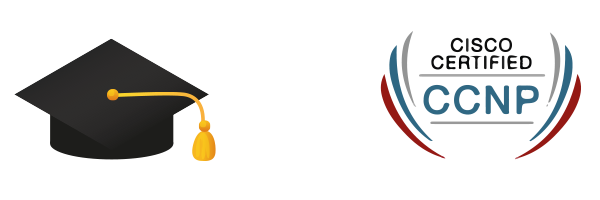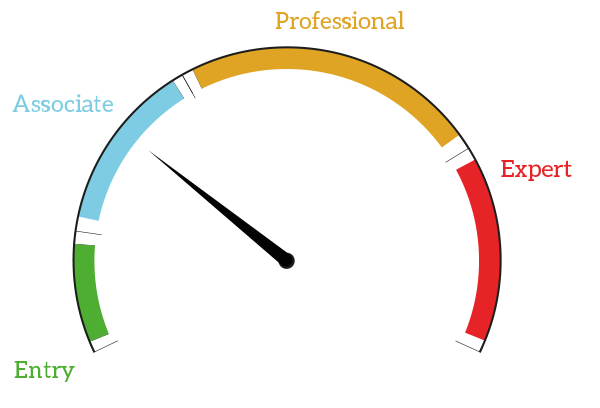We all know that ICT keeps evolving fast, and if you want to do a job, knowledge of the environment and of the technologies won’t be enough: you need actual skills. In other words, In ICT you have to know what you are doing and how to do it. Because of that, top vendors such as Cisco or Microsoft defined certification programs, courses with exams to prove your skill in a specific field. And if you want to know why would you participate in something like that or how to do it, you landed on the right article, because we will disclose everything you need to know about vendors’ certification.
Where to get technical skills
If you want a fulfilling career in ICT, you need to know how to do your job. In other words, thinking about a solution is not enough: you have to transform it into reality, and to do that you need technical skills. These skills could be how to code in Java, how to configure a network device, how to set up a VPN and so on, depending on the field you are going to work in. To be even more specific, you need to know exactly what to type at the computer, where to click and what to look for. The question is: where do you learn that?
Often time, the problem is that you know what is your dream job and you don’t know exactly what is the best way to get the needed skills, because not working in that role just yet means that you do not know exactly what is needed, and therefore how to get it. Because of that, it is very common to start pursuing a degree in a sub-field of ICT, such as Software Development, Network Engineering, and so on. These are certainly great paths to follow, but they might not be the one getting you closer to the target. Think about that, a degree is not designed to give you all the practical skills you need, but instead to give you a solid knowledge of the concepts behind. With it, you are going to develop a great mindset to face real-world problems, but this is not enough. It is a great underlying layer to learn technical skills on the job. However, with a degree, you will learn concepts about many different technology fields, but you are going to work on only a few of them. To state it more clearly, you are wasting some of your time (and your money). What is the alternative, then? What if you can land a job by having already all the needed skills, even if it is your first job ever? A great alternative to doing exactly that is a certification in a technology field.

The first thing you want to notice if comparing a certification with a degree is that they have been designed for technical skills specifically. If pursuing certification, you are going to learn about the concepts you need to do your job, not about many others you don’t need. And, for every concept, you are going to learn what you need to do in practice to make that concept an implemented working solution. Before diving any further into a comparison, let’s explain what a certification exactly is.
A certification is a document released from a vendor to individuals in order to prove their technical skills about specific topics. In order to get a certification, you need to pass one or more exams, each of them proving a set of skills you need to face different problems in a similar context. A certification from a vendor gives you general concepts about the technology and explain to you how to implement the solution with the specific products that the vendor produces. Also note that many vendors have developed courses, books and online material to help you learn everything you need before taking the exam. Another important item to consider is that certifications do expire, they are not forever. This is because you need to prove that you know the modern technologies, so every 2-to-5 years, depending on the certification and the vendor, you need to prove your skills again to demonstrate you are keeping pace with the evolution of technologies. For many vendors, however, you do not need to take the same exam over and over, but instead, you can get a certification at an equivalent (or superior) level but on another field from the same vendor to renew all the certifications on the same level.
Now that we have an idea about what certifications are, we can summarize a comparison with a degree.
| Degree | Certification | |
|---|---|---|
| Focus | Focused on concepts mainly | Focused on technical skills mainly |
| Provider | Public or private independent institution | Vendor of a technology |
| Expiration | Never | After 2-to-5 years if not renewed |
| How to prepare | Studying, researching | Studying, practicing on simulated environments |
| Courses are mandatory? | It varies | It varies |
| Time to achieve | 3 to 5 years | A few months (entry-level) to several years (top-tier) |
| Cost | Depends on country and institution | A few hundred dollars for entry-level, up to a few thousands for top-tier. |
| Benefits for you | Being recognized from an independent institution | Being recognized from an industry leader on a very specific technology |
| Benefits to your company | Prestige, in case of Ivy League or similar university | The company can get discounts on the products from the vendor who provided the certification |
After that, the question can be: any certification can beat a degree when it comes to getting an ICT job? The short answer is “No”. This is due to the fact that certifications are not only divided per technology field (track) but also per skill level.
Measure your level with vendors certification
Not all certifications are made equal, some prove higher skills than others. In this section, we will cover just that. The first thing to notice is that certifications are grouped into technology fields, named tracks. And the name is pretty clear, if you set yourself onto a track, you can start going down this path and, at the specific points, you will find the certification milestone. On the same track, you have more certifications, each of them proving that you have acquired more skills on the same technology field than the previous one. This incremental approach defines your level of knowledge of a given technology. At the moment, the most used differentiation in levels is Associate, Professional, and Expert. Also, some vendors added the Entry-level before you can become an associate.

All in all, we could say that a bachelor’s degree and a professional level certification sit at the same level. The difference is that with a professional-level certification you can run a multi-national network, with a degree you are just a fresh graduated. Let’s go deeper into these levels.
- Entry-level, the very first one, introduced by Cisco with the Cisco Certified Entry Networking Technician (CCENT), is the very first step, proving that you know what the technology is and why it is needed, plus you have the necessary prerequisites of knowledge to use it. It used to lay at the bottom of all the other certifications as common ground, but now Cisco is making each track completely independent. Another entry-level certification is the CompTIA, which is vendor-independent and prove a general entry-level knowledge of ICT
- Associate level, an individual certified at this level knows the technology and can manage problems and projects of small entities. He has the knowledge necessary to understand bigger problems and work alongside more skilled technicians, giving support for simpler tasks – this way, he can also grow his skill set.
- Professional level, this certification makes you able to work independently and manage a complex network on your own, this includes the implementation and the low-level design of solutions, as well as troubleshooting faults in a huge environment
- Expert level, at this level you are actually an expert, you know every bit of the technology and you do not only know problems and solution, you are proven to be so skilled to have the necessary knowledge of identifying and solving even problems you haven’t seen before
At this point, we left just one thing outside the picture: the specialization certifications. These are specific certifications that prove you have a solid knowledge of a specific product. These certifications are so specific that last only two years most of the time, whereas other certifications such as CCNA or CCNP last for three years. If to renew a CCNP in a track you could obtain a CCNP in another track, for specialization certifications you need to renew the exact same certification. This not only because this way you must keep pace with the technology improvements, but also because this way you have to keep working on the technology because if you don’t you will lose your skills over time.
At this point, we covered everything you need to know about what certifications are, but another thing that you should consider in a more specific manner is what can be beneficial to you and to your organization should you get certified.
The benefits
Getting certified can require very hard work, but once you do get certified you will be gratified, and this not only because you accomplished your objective, but because you will start to get benefits for you and for your organization (that, all in all, are other benefits for you). The first thing you may want to consider are the benefits for you because they are simple to explain. You have a single major benefit: you are recognized by the industry leader, so a company willing to hire you will know that your skills are somehow guaranteed. A more complex topic to disclose is made up of the benefits for your company, read on.

What’s in it for your company? A lot of things, many more than what’s in it for you, to be honest. However, since they get so many benefits from hiring a certified professional, you increase your chances to get hired, and everything translates into a benefit for you, indirectly. First, many vendors have developed a partnership program for companies reselling their products. A company is labeled as a “Partner”, “Silver Partner”, “Gold Partner” and such and as the partnership-level increase, they get special offers on the products of this vendor. In other words, you can reduce the cost of the supplier significantly, considering also that vendors are not simple suppliers and are definitively not cheap.
Being a partner of a vendor is not only just about money, but it is about the company image you are going to give you to customers: a Gold Partner will sound more solid than a simple reseller, so you will improve the reputation with customers who, at the end of the day, maintain your company. Moreover, if you send a technician to a customer, it is more professional to say “I am giving you a Certified Expert” than “Yes, he knows what he is doing”. Certified technicians are a warranty for a company.
How can a company be a partner of a vendor? It depends on the vendor, but a very common requirement is to have some certified personnel. As the number of certified employees increase, and as their certification level increase too, the partnership level increase. Moreover, you should maintain the requirement of personnel to maintain the partnership (if you do not satisfy the requirement anymore you lose the partnership).
If you work for a partner, you can get some extra benefits. For example, Cisco provides to Gold Partners the Gold Labs, a test environment where you can try some products and technologies before putting it in a production environment, for free. Not only you can try them to test your skills, but also to present a demo to the customer.
Often times, if you are hired by a good company, you will be pushed from your manager to get more certifications. Not only that, but the company will also pay for your training and for your exams. This way, you can ensure to be always competitive on the market of ICT technicians. Want to get certified? The next section explains exactly how to do that.
Where to get certified & other certifications
You’re excited, you think your career can have a boost if you pursue a certification track, but you are not sure about what to do right now, what is the first step exactly. Just read on to move the first steps in the certification world.
The first thing you have to find out is the ICT field you like most. A lot of fields exist, all with great opportunities. If you are unsure even on that, check out our Discover articles that present the big picture of what ICT is, without diving into specific details. If even after that you still feel uncomfortable making a decision, you might pursue CompTIA, which is vendor-neutral and it has been designed to prove a generic global understanding of ICT. After achieving this certification, you will surely have a clearer picture and you’ll be able to find your own path.
Another great alternative to start, if you are interested in networking, is Cisco CCENT and then CCNA certifications. They are very popular and highly requested for entry-level jobs. After you get certified in one of those, you can also consider other certifications from other vendors like the ones from Juniper networks or more specific ones such as Palo Alto for security or F5 for load-balancing. No matter which vendor you choose, the important thing to know is that each vendor relies on a third-party testing environment. In other words, you won’t go to Cisco offices to give an exam (except the Cisco Certified Internetwork Expert Lab exam, which is given at Cisco head-quarters), but you will go to a partner test-center. Most vendors rely on Pearson VUE, to name one.
Learn on your chosen vendor’s site which third-party is offering exams, then go to the link provided (for example pearsonvue.com/cisco) and register a new account. After that, you can find a test center near your location and book the exam. The cost will vary, depending on the vendor and certification level. I suggest not book the exam unless you feel completely ready for it. In order to get ready, go to your vendor’s site and check out the latest requirements and topics of each exam before taking it. Once you passed each exam required for the certification, you will get certified! Generally speaking, entry-level certifications require only one exam. What will the exam consist of? It depends on the vendor, generally, it is composed of multiple-choice questions, some vendors even prevent you to use the “Back” button so that you cannot check previous questions.
To prepare for the certification, use what you feel comfortable with: video, books, online training, and such, but most of all, I suggest you try everything you see in a lab environment if you have the possibility to do it.
Before we can conclude, some words must be spent on the CCIE and CCAr certifications. The CCIE is the expert-level certification from Cisco and, differently from other certifications, it has a “traditional” written exam and a lab exam, which is held at Cisco’s offices by an already CCIE engineer. Then, the next step is the Cisco Architect, a highly trained engineer who knows how to implement Cisco solutions. Not only this certification is quite costly, but it also requires you to demonstrate how a real-world solution you designed work and then design a new one on given fictitious requirements.
Now that we have covered everything about certification, the ball is in your court. Will you get certified? Which certification are you going to pursue first? If you want to pursue a CCENT and then a CCNA Routing and Switching, just relax and continue reading the ICTShore.com CCNA course, because it will take you to the finish line!
